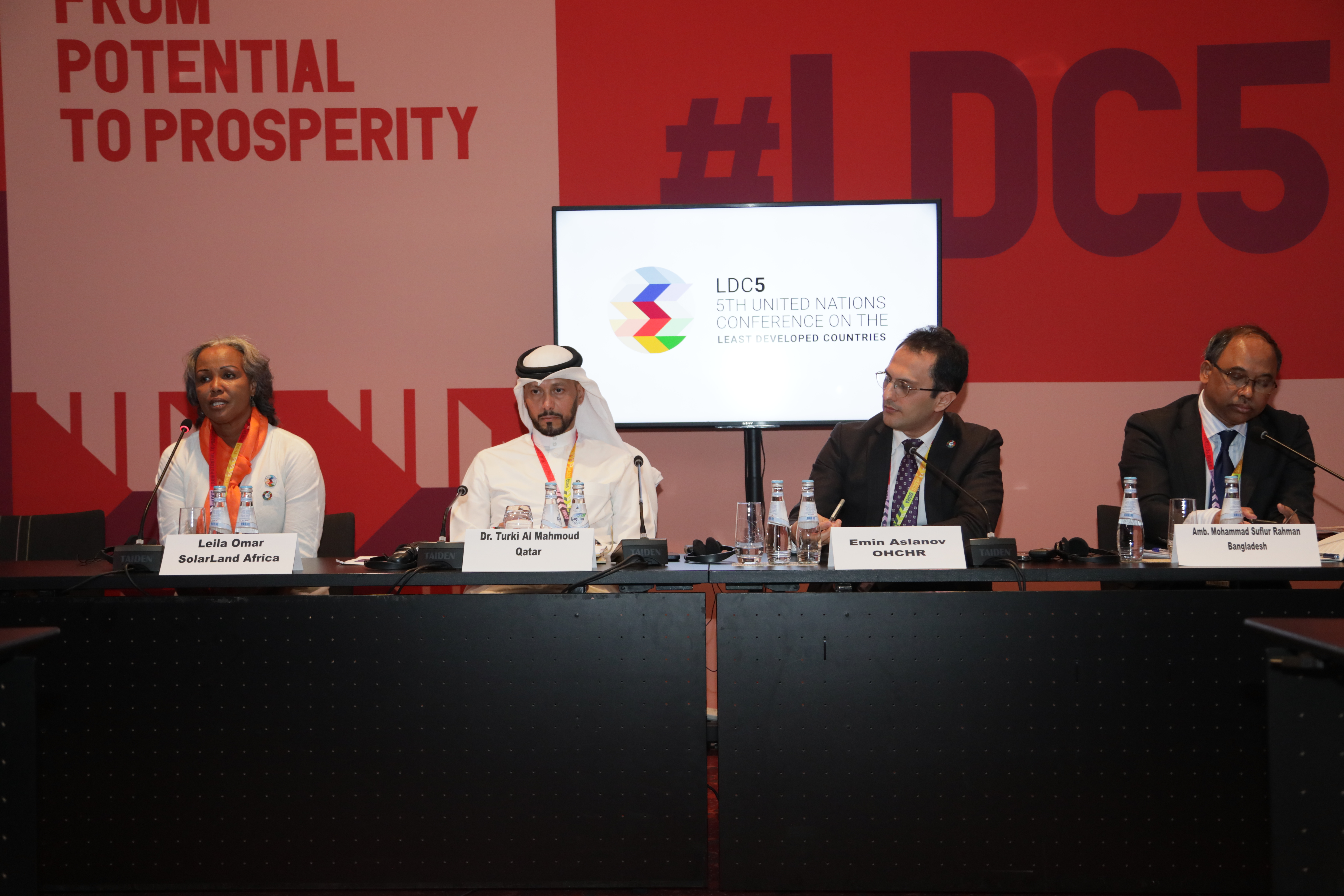Human Rights Director at Ministry of Foreign Affairs: Doha Program a Good Plan for Investment in People, Poverty Eradication

Doha, Media & Communication Dept., March 08
HE Director of the Human Rights Department at the Ministry of Foreign Affairs Dr. Turki bin Abdullah Al Mahmoud affirmed that the Doha Program of Action (2022-2031) is a good plan for the least developed countries as it incorporates key criteria, the most important of which are investment in people, poverty eradication and capacity building without discrimination, especially for most vulnerable elements such as women, the elderly and people with disabilities.
In a session on generalizing the right to development through the Doha Program, His Excellency added that the Program's second criterion is to take advantage of new technology in order to improve infrastructure in the least developed countries, while the third is to support structural transformation to make it an engine of prosperity in least developed countries.
The promotion of international trade for the least developed countries and the integration of regional interaction are among key factors or criteria for the Doha Program towards facing modern challenges and threats such as the Coronavirus pandemic and the repercussions of climate change; thus, these countries must be ready to face future challenges, he said, stressing the need for mobilizing global solidarity to implement the Doha Program to help the least developed countries' exit and transition to the list of medium developed countries.
HE Dr. Turki also stressed the importance of providing global community protection for the least developed countries and enabling them to access quality education, acquire necessary skills, achieve the principle of gender equality, empower women and youth to lead economic growth, improve health, build sustainable peace and achieve sustainable development, pointing to the need to benefit from technology to empower communities in the least developed countries, increase the number of scholarships and places for education and training, and support access to the Internet, electricity and a healthy life. He pointed to the need for an appropriate and good implementation of the Doha Program and good follow-up and supervision mechanisms at the national, regional and global levels.
HE Director of the Human Rights Department at the Ministry of Foreign Affairs called on the United Nations entities to support the implementation of the Doha Program effectively and to conduct annual reviews of the progress achieved in implementing the Program in order to facilitate any challenges that may arise and add any amendments that may be required to such programs.
The high representative also called on the least developed countries to participate strongly in this process to support the global review of the Doha Program and its implementation at the national level, stressing that good results of the program cannot be achieved without strong commitments from the least developed countries, and the strong involvement and participation of the international community.
Panelists at the session highlighted the importance of generalizing the right to development in the implementation of the Doha Program for the Least Developed Countries to ensure that the implementation process is inclusive and participatory by taking into account the needs and rights of all people, including those in a weak situation and ensuring that their voices and perspectives are heard and considered in the formulation and implementation of development projects. They also focused on the need to strengthen the resilience of least developed countries in the context of epidemics, conflicts and climate change.
They discussed how the implementation of the Doha Program can contribute to the enjoyment of all human rights by all in the least developed countries. They also reviewed the experiences of their countries and the organizations they represent in addressing the challenges facing their societies and highlighting success stories in them, stressing that development is one of the most urgent necessities of human rights, and it is a comprehensive economic, social, cultural and political process.

